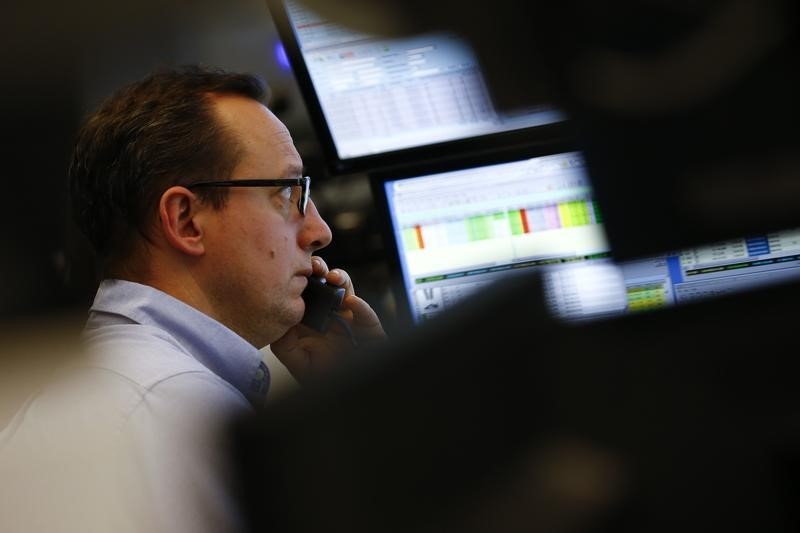In its recent report, HSBC delved into the multifaceted impact of artificial intelligence (AI) on the economy, highlighting the promising progress as well as the potential pitfalls and challenges that lie ahead.
The report paints a balanced picture, dissecting the ‘good’, the ‘bad’ and the ‘ugly’ aspects of AI, with the aim of helping investors navigate the rise of this transformative technology.
The good
In the “good” part of the note, HSBC pointed out the enormous potential of AI to, among other things, achieve productivity improvements in various sectors. Generative AI in particular is seen as an important driver of this productivity growth.
The report notes that AI could improve overall productivity, with estimates suggesting an annual increase of 0.1-1.0%.
“If this is achieved, it would be a significant boost to the equity markets. However, past examples of similar technological developments suggest that this momentum may be more elusive than many currently expect,” the HSBC researchers wrote.
One of the standout sectors is design and manufacturing, where AI is already being used to optimize processes, reduce waste and create innovative products. For example, the Mercedes F1 team used AI to design a rear suspension component in just 48 hours, a task that typically takes six weeks.
The banking and financial services sector will also benefit substantially, with AI enabling faster data analysis, improved decision-making and improved customer service.
HSBC also highlights the broad benefits in other sectors, including pharmaceuticals, where AI is helping with drug discovery and clinical trials, and hospitality, where this fast-growing technology is improving the customer experience through virtual assistants and predictive inventory management.
The bad
Despite these promising prospects, HSBC researchers warn of the potential downsides of AI.
One of the main concerns is the impact on employment. The report indicates that AI-powered automation could displace a significant number of jobs, especially when it comes to repetitive tasks. Even if AI does not lead to significant job losses, it will likely change the balance between capital and labor, shifting profits to capital.
“A comprehensive IMF study shows that almost 40% of global employment is exposed to AI, while developed markets (60% of jobs) are more exposed to the shock, given the structure of the labor market,” HSBC said .
“This is an important early distinction – while automation (such as robotics) has generally impacted demand for personal work, AI will play a much bigger role in the future of service sector work, with those ‘higher skill’ roles. may be at greater risk. As a result, the impact of AI is more likely to be seen in developed economies for the time being,” the report said.
The competitive landscape could also be affected as companies may overinvest in AI technologies, increasing costs and reducing potential profitability.
HSBC points out that while the initial productivity gains are attractive, historical parallels with other technological breakthroughs imply that these benefits may not be as transformative as expected. Previous examples, such as the dot-com bubble, have shown that excessive exuberance can lead to unsustainable investment increases, followed by sharp corrections.
“Of course, it is probably too early to know whether the current period of AI excitement will end in the same way, as we are still in the very early stages of the hype and investment that could result. ,” writes HSBC.
“But it is also worth keeping in mind that, if we were to move into a period where expected returns from an AI-induced boom were exceptionally high, policymakers would have to respond with a period of higher real interest rates to degree of financial excesses in the system,” the team continued.
The ugly one
In its report, HSBC also did not shy away from addressing the more troubling aspects of AI.
One of the main concerns is the erosion of trust and truth. Generative AI has made it increasingly difficult to distinguish between real and fabricated content, posing significant challenges for cybersecurity, fraud prevention, and political stability.
“Over several generations, humans have developed many heuristics that have served us well until now,” the report said.
“The most striking thing is that we say: ‘seeing is believing’. Well, not anymore thanks to Generative AI. This has significant implications for cybersecurity, fraud and political harmony.”
Moreover, the environmental impact of AI is another crucial issue. The increased use of power-hungry AI tools is expected to increase electricity demand, requiring more innovations in energy technology to mitigate this growth.
Furthermore, the uneven distribution of AI benefits could increase inequality, particularly in emerging markets (EMs), which could face greater disruption as jobs move to developed markets.
In summary, while AI has enormous potential to revolutionize productivity and boost economic growth, HSBC’s report urges caution. The benefits are unlikely to be shared equally, and the risks – ranging from job losses and competitive pressures to trust issues and environmental concerns – are significant.
“Overall, we see reasons to be optimistic about the broader economic impact of AI, although not all businesses, markets and people will benefit equally,” HSBC said.
“But while we are not necessarily convinced by some of the arguments about the perceived threat of AI, we think it is useful for investors to understand them as they have the potential to shape opinions on a technology that is already causing massive shifts in asset prices causes. .”


